About half-way through Rebecca’s hour-fifteen commute to school, she realized she had forgotten to pack any food for that day. She had been so busy preparing for upcoming exams the previous night, she hadn’t had time. Luckily Rabbi Aaron Greenberg from OU-JLIC was going to be on campus that day, and he practically always brought food to his shiurim, so Rebecca knew she would be o.k. for lunch. But she had been hoping to stay late today and study with some of the other students in her program, and now she would be hungry. Maybe she should skip the study session and head home early, as her classmates usually liked to study in one of the cafeterias, and she always felt awkward sitting there and not being able to order or eat anything. Oh wait…! That’s right Rebecca no longer needed to sit awkwardly in the cafeteria or go hungry because she hadn’t been able to pack food, just this past month her university had started offering kosher food options.
Rebecca, is a second year Biomedical Engineering student at Ryerson University, in downtown Toronto. Rebecca was part of a committee that helped bring the kosher food to her campus, and this is how it happened:
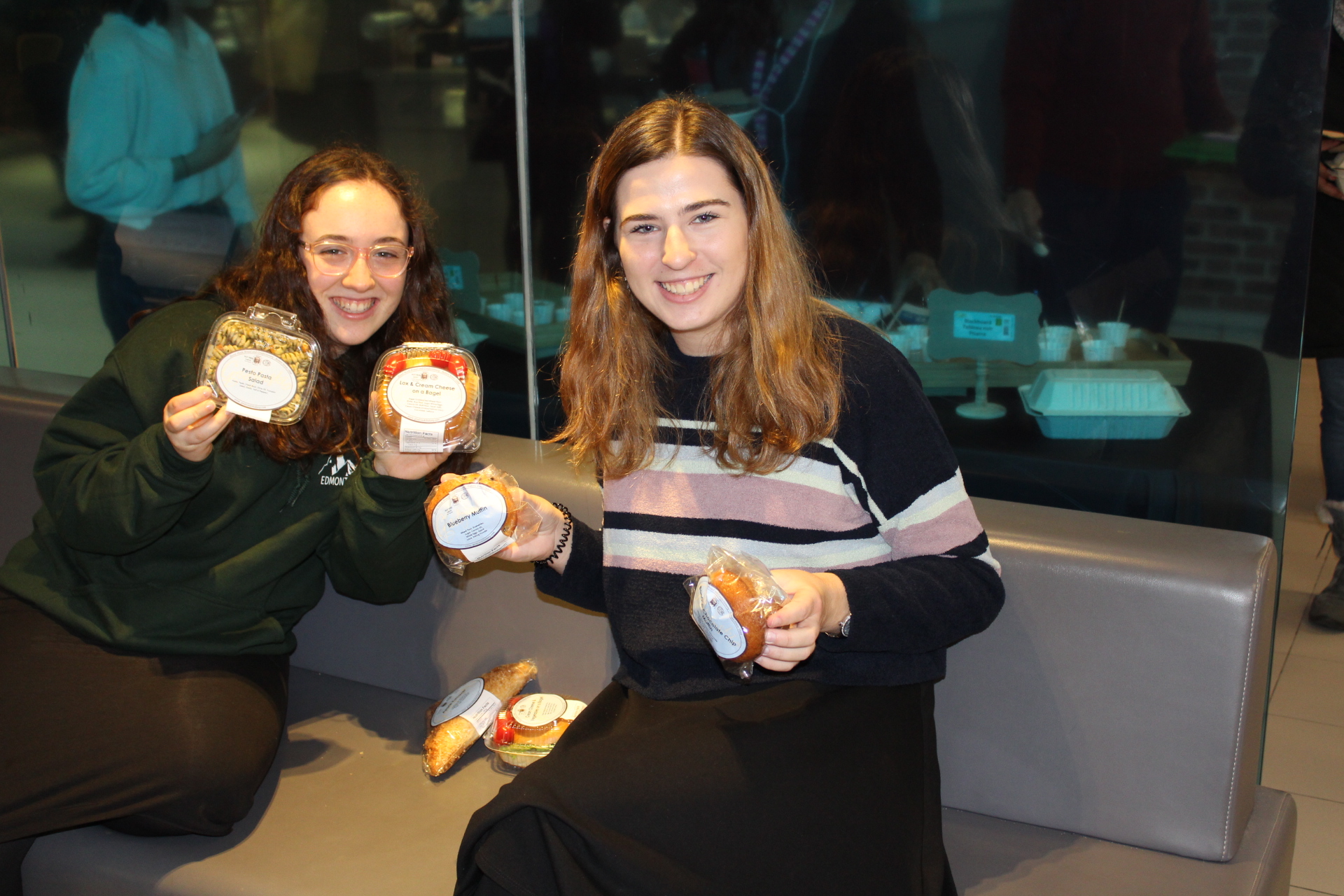 Last winter, Hillel, OU-JLIC and Ryerson students decided to try and make kosher food available to students on campus. Rebecca, who is on the OU-JLIC student board and participate in Hillel events, was asked to be on the committee, because as a newer student (at the time), who was very involved in campus life, she could bring a fresh perspective to the table (no pun intended). Rebecca, was also used to being the odd one out, as one of the few Jewish female engineering students, which would help her express her peers needs without feeling uncomfortably different. The committee spent most of the spring figuring out their vision for kosher food on campus, what they would need to make it happen, and arranging a meeting with Ryerson Eats – the Ryerson University food service.
Last winter, Hillel, OU-JLIC and Ryerson students decided to try and make kosher food available to students on campus. Rebecca, who is on the OU-JLIC student board and participate in Hillel events, was asked to be on the committee, because as a newer student (at the time), who was very involved in campus life, she could bring a fresh perspective to the table (no pun intended). Rebecca, was also used to being the odd one out, as one of the few Jewish female engineering students, which would help her express her peers needs without feeling uncomfortably different. The committee spent most of the spring figuring out their vision for kosher food on campus, what they would need to make it happen, and arranging a meeting with Ryerson Eats – the Ryerson University food service.
While, there was always the convenience store offering of packaged chips or cookies bearing a hashgacha, that Jewish students could find and eat around campus, there were no real meal options or healthy and fresh snack choices for Jewish students that forget to pack enough food, or didn’t have time to pack food (partially due to the 2+ hours of commuting to/from the Jewish suburbs of Toronto), or didn’t want to schlepp their pantry to/from school, when they need room in their bags for books.
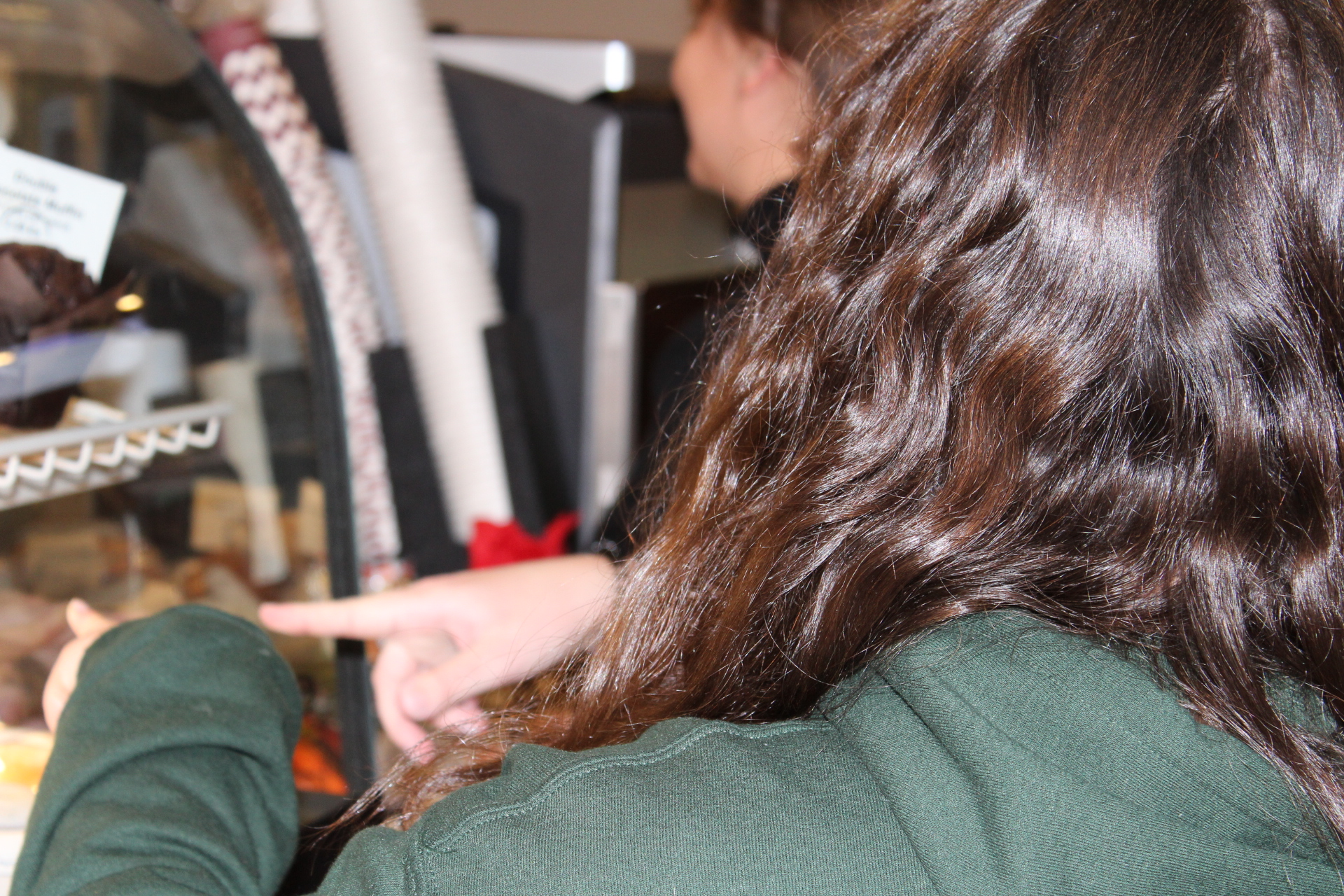 When the committee presented their need to Ryerson Eats in mid-August, the university was immediately open to trying to help facilitate a solution. The committee had found that several of the downtown hospitals offered pre-packaged kosher food options, and had come up with a list of kosher restaurants that might be able to supply Reyrson as well. They provided Ryerson Eats with this list, and after contacting several establishments, Grodzinski bakery was able to make regular deliveries to campus. Then, Ryerson Eats and the committee had a second meeting to discuss what food options they wanted to offer initially, and how to promote it, so students knew about the kosher food and would buy it, so that the deliveries could continue.
When the committee presented their need to Ryerson Eats in mid-August, the university was immediately open to trying to help facilitate a solution. The committee had found that several of the downtown hospitals offered pre-packaged kosher food options, and had come up with a list of kosher restaurants that might be able to supply Reyrson as well. They provided Ryerson Eats with this list, and after contacting several establishments, Grodzinski bakery was able to make regular deliveries to campus. Then, Ryerson Eats and the committee had a second meeting to discuss what food options they wanted to offer initially, and how to promote it, so students knew about the kosher food and would buy it, so that the deliveries could continue.
According to Rebecca, the Ryerson food service always wants to improve the services they provide. They were already offering vegetarian, vegan, halal, and gluten free food on campus, and were excited to try and add kosher food to the mix. While students need to buy the food (just like any other food offered in the cafeterias), the university is not charging any markup or doing this to make money – they are selling the food at cost and if food does go unsold they are willing to accept the loss in order to provide the Jewish students with kosher food.
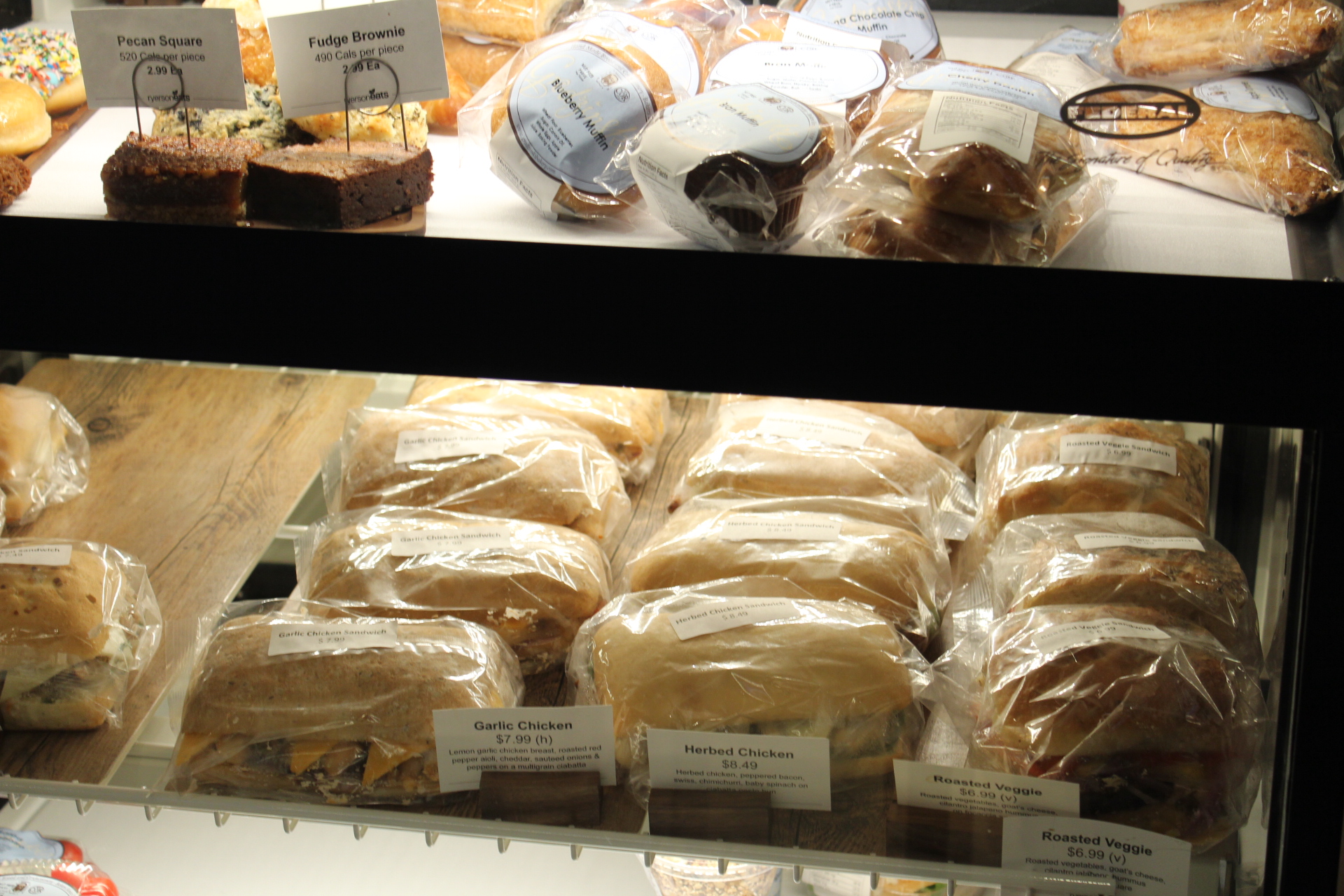 But so far, this doesn’t seem to be an issue, as the food is flying off the shelves and needs to be restocked several times a day. The kosher food, which currently consists of muffins and danishes, yogurt breakfast cups, and sandwiches and wraps (dairy and meat), are available every day in the Hub Cafe. Rebecca says, it is nice to now be able to join her non-Jewish friends in the cafe during lunch break to talk and study, and with so few Jewish students in her program, this is another added benefit of the kosher food being offered in the cafe.
But so far, this doesn’t seem to be an issue, as the food is flying off the shelves and needs to be restocked several times a day. The kosher food, which currently consists of muffins and danishes, yogurt breakfast cups, and sandwiches and wraps (dairy and meat), are available every day in the Hub Cafe. Rebecca says, it is nice to now be able to join her non-Jewish friends in the cafe during lunch break to talk and study, and with so few Jewish students in her program, this is another added benefit of the kosher food being offered in the cafe.
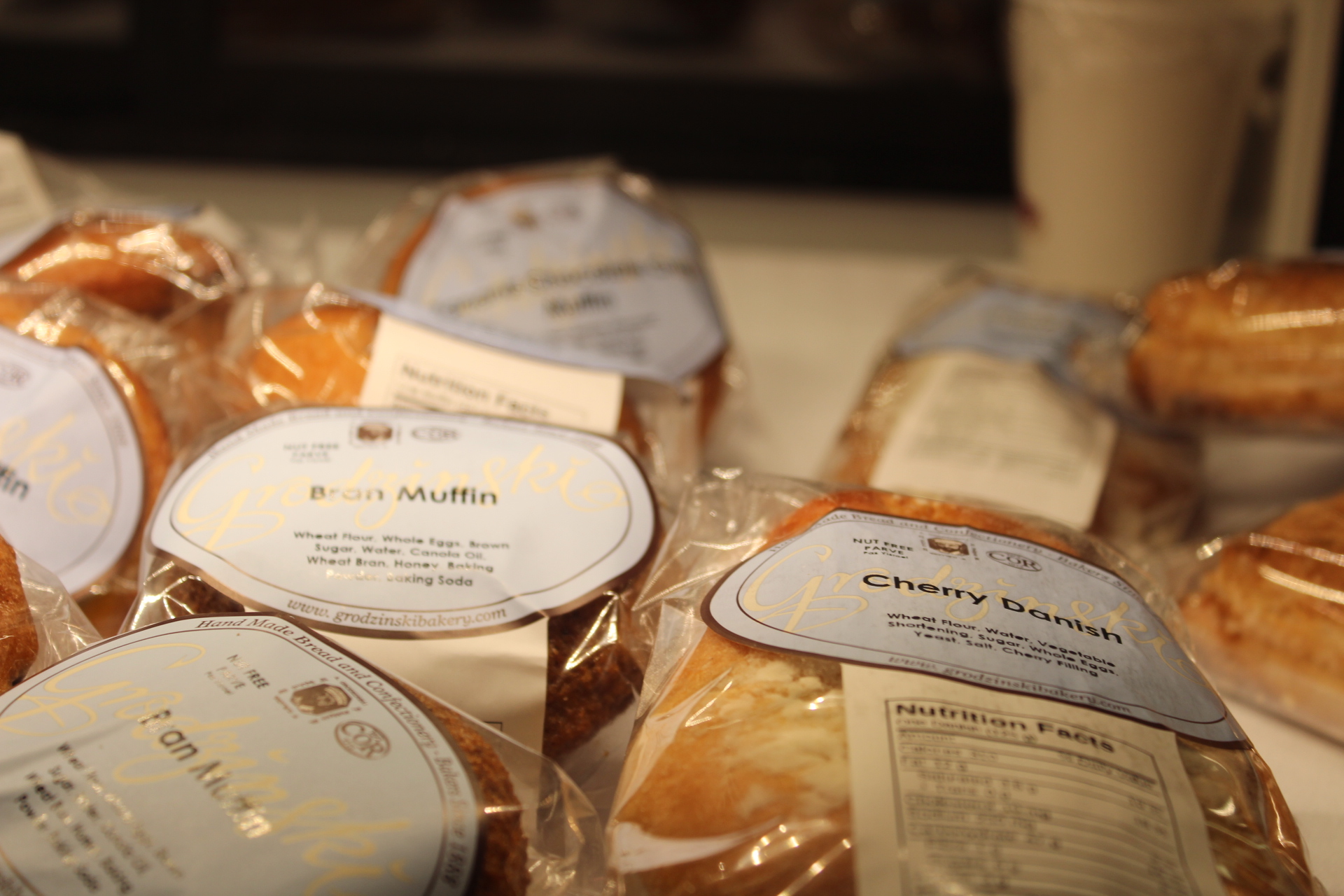 When asked what she was proudest about in this whole process, Rebecca answered, “I am very proud of the fact that it worked, and that the school was so willing to help. I never felt judged by school faculty throughout this process. Instead, they made me feel comfortable, and like its o.k, to say who you are. That there wasn’t any reason to be ashamed or hide to say “Oh I eat kosher.” It makes me more proud to be Jewish. It feels good that Ryerson promotes eating kosher on campus. And the relationships I made.”
When asked what she was proudest about in this whole process, Rebecca answered, “I am very proud of the fact that it worked, and that the school was so willing to help. I never felt judged by school faculty throughout this process. Instead, they made me feel comfortable, and like its o.k, to say who you are. That there wasn’t any reason to be ashamed or hide to say “Oh I eat kosher.” It makes me more proud to be Jewish. It feels good that Ryerson promotes eating kosher on campus. And the relationships I made.”
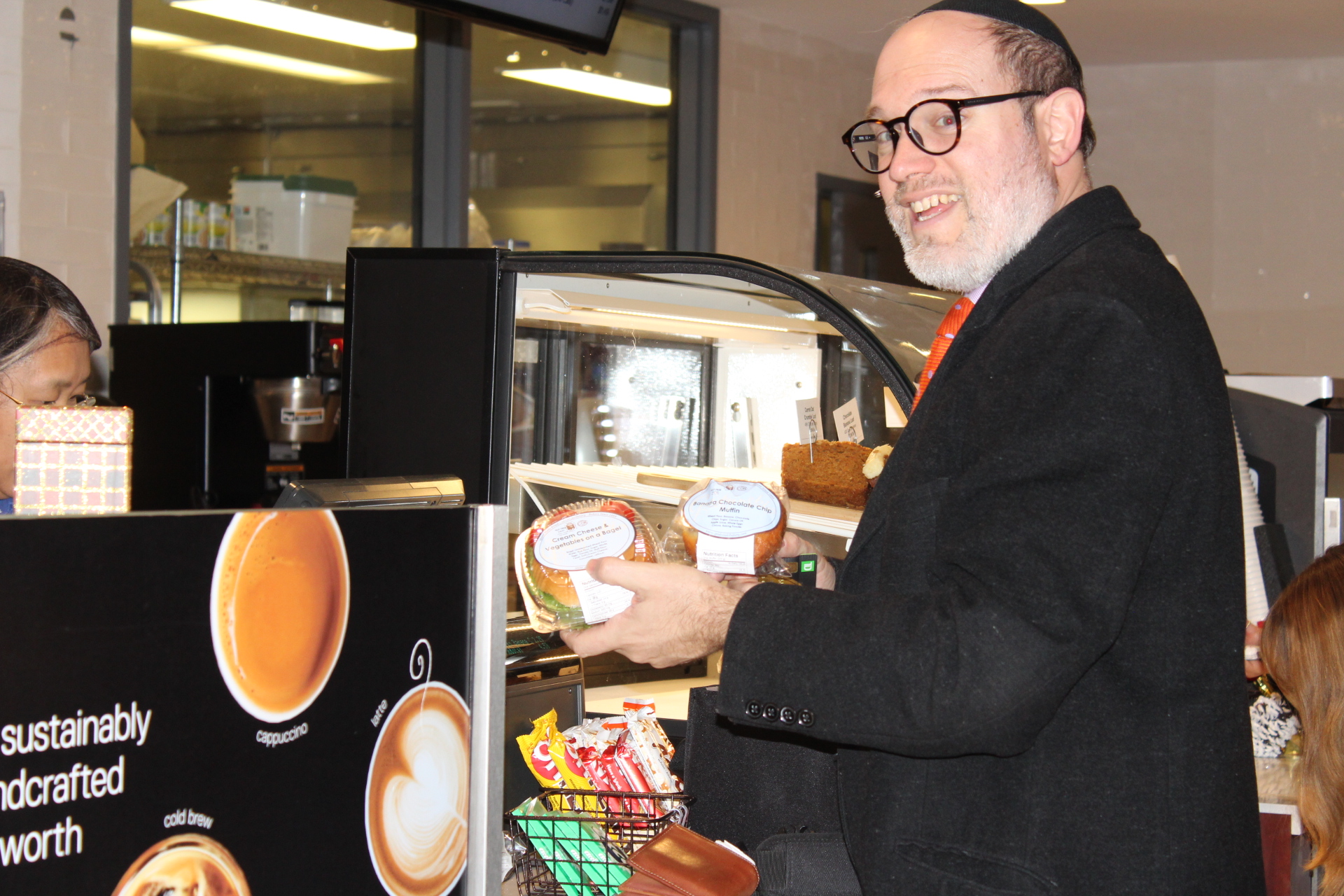 Rabbi Aaron Greenberg, who is one of the OU-JLIC Torah Educators in Toronto, was consulted throughout the process. He helped the committee prepare talking points before their meetings, provided the number of kosher students on campus, potential food options, information about the proximity (or lack thereof) to other kosher restaurants/venues and previous efforts that had not succeeded and why. Echoing Rebecca’s sentiment, Rabbi Greenberg hopes this will teach the Jewish students to “be proud of who they are and not feel they are second class but the administration and the community supports them and their important way of life. To paraphrase Rabbi Sacks, non-Jews respect Jews that respect Judaism and non-Jews do not respect Jews that do not respect Judaism.” I think this situation is demonstrates Rabbi Sacks’ truism and hashkafat hachayim.
Rabbi Aaron Greenberg, who is one of the OU-JLIC Torah Educators in Toronto, was consulted throughout the process. He helped the committee prepare talking points before their meetings, provided the number of kosher students on campus, potential food options, information about the proximity (or lack thereof) to other kosher restaurants/venues and previous efforts that had not succeeded and why. Echoing Rebecca’s sentiment, Rabbi Greenberg hopes this will teach the Jewish students to “be proud of who they are and not feel they are second class but the administration and the community supports them and their important way of life. To paraphrase Rabbi Sacks, non-Jews respect Jews that respect Judaism and non-Jews do not respect Jews that do not respect Judaism.” I think this situation is demonstrates Rabbi Sacks’ truism and hashkafat hachayim.
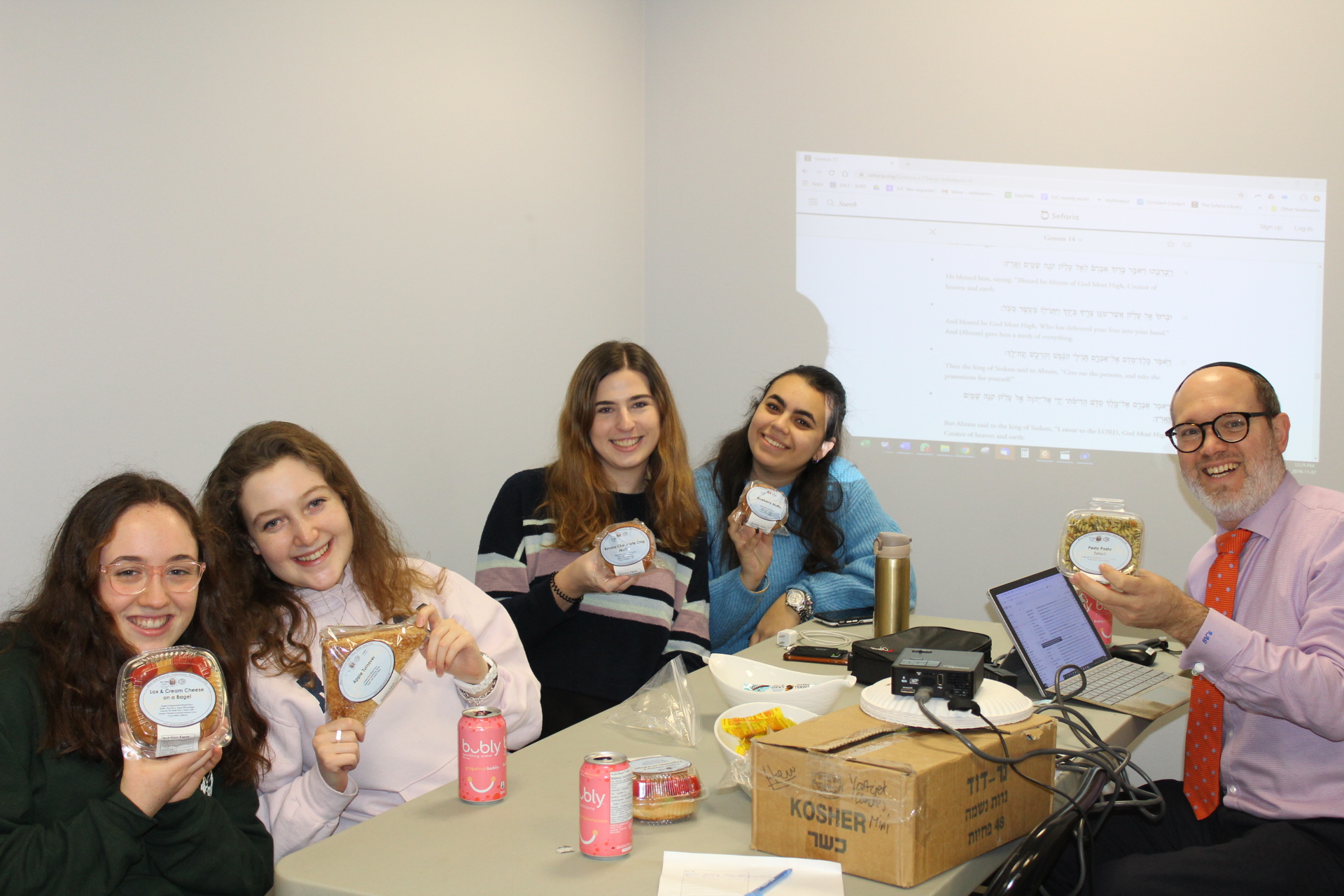 When further asked if she thought students would stop attending Rabbi Greenberg’s classes now that they could find kosher food elsewhere on campus, Rebecca didn’t think so. Now Rabbi Greenberg will often buy the food from his classes from the Hub Cade instead of bringing it downtown with him, and the student still come, because who doesn’t love free food – and they love him and his classes too!
When further asked if she thought students would stop attending Rabbi Greenberg’s classes now that they could find kosher food elsewhere on campus, Rebecca didn’t think so. Now Rabbi Greenberg will often buy the food from his classes from the Hub Cade instead of bringing it downtown with him, and the student still come, because who doesn’t love free food – and they love him and his classes too!
Rebecca says, so far the biggest challenge was finding a restaurant that could deliver to the university, but now she and the committee are focused on continuing to promote the kosher food on campus, so interest doesn’t wane, and it stays there for students to benefit from, and maybe even they can expand the food options.